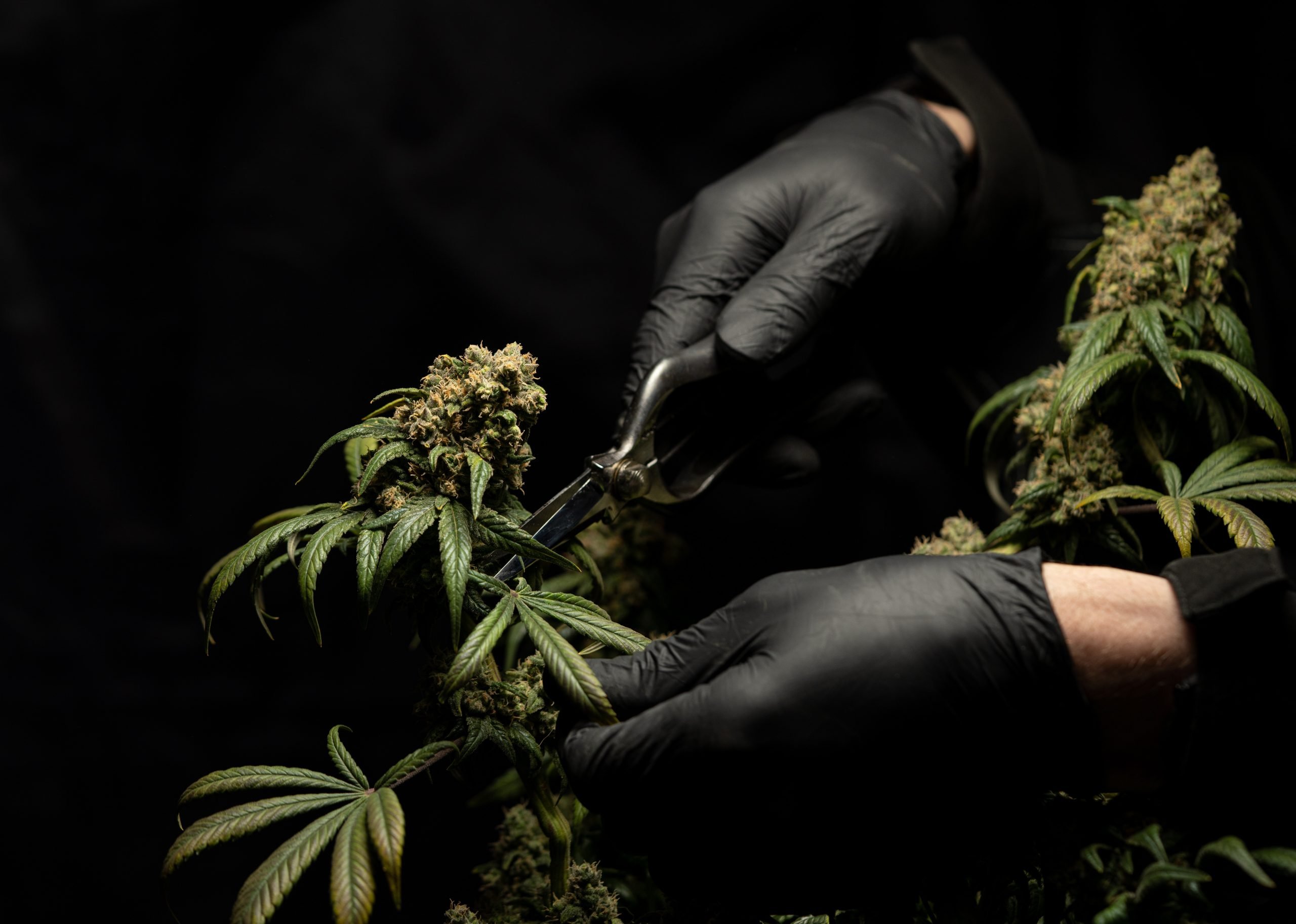
What is CBN and What are the Differences Between CBN vs CBD?
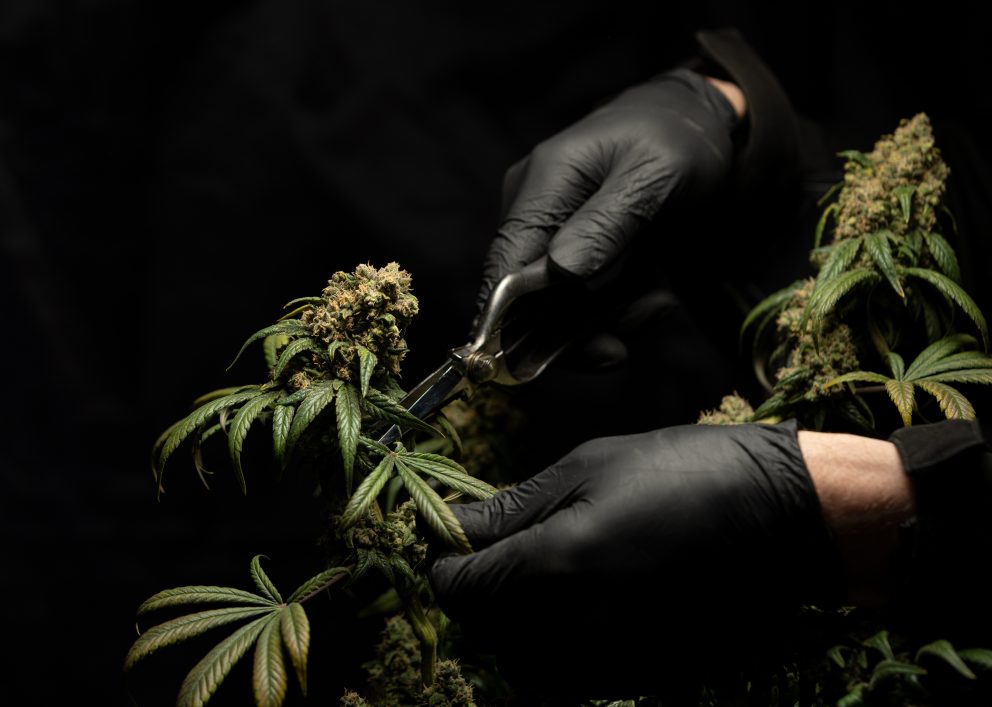
Photo by Crystalweed Cannabis
If you know anything about weed, you may have heard about the two most popular cannabinoids: THC and CBD. While THC is what gives cannabis products the psychoactive effects, many consumers are turning to CBD-heavy products for their therapeutic benefits.
But there’s another CBD-adjacent cannabinoid you may not have heard of: CBN.
What is CBN? The relatively unknown cannabinoid is one of more than 100 found in the cannabis plant. It may not be as popular as CBD just yet, but more and more dispensaries are including CBN in their strains.
In this guide, we’ll explore everything you need to know about this rising cannabinoid, from how it affects the body to how it compares to its better-known cousin (CBD).
Apply for a Medical Marijuana Card Online Today
Join over 100,000 patients who have chosen Green Health Docs as their medical cannabis doctors. We have a 99% approval rate and offer a 100% money back guarantee!
What is CBN?
CBN is a plant-derived compound found in the marijuana plant, much like cannabidiol (CBD). What sets it apart, however, is that CBN is formed after the plant has been harvested.
This cannabinoid forms only after THC has oxidized due to heat, light, and air exposure, which can happen naturally over time. While there are still traces of CBN found in fresh cannabis, you’re more likely to find it in old, dried cannabis flowers. It can also be produced synthetically.
After transforming into CBN, the cannabinoid may still cause a slight “high.” However, experts say that it produces only a weak psychoactive response, and many users report not feeling any high whatsoever.
As a newcomer to the cannabis scene, the research on CBN is still limited. However, it shows great promise for its pain-relieving and sleep-inducing benefits. Some have even dubbed it the “sleepy cannabinoid” for its use in treating insomnia and other sleep disorders.
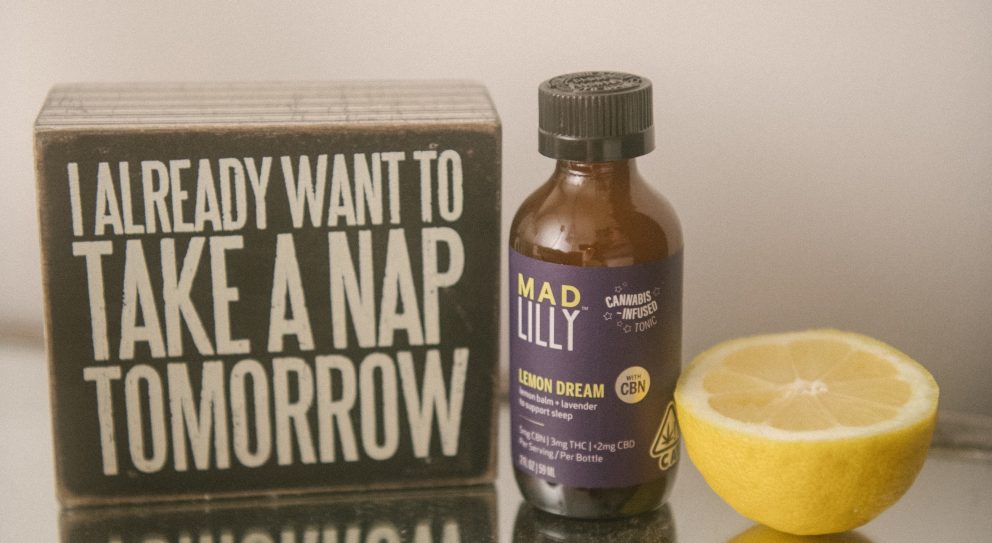
Photo by Elsa Olofsson
CBN Effects: What to Expect
CBN may not be as psychoactive as THC, but it may still give you a mild high if taken in large doses. If taken normally, however, CBN produces a gentle, mellow sensation of relaxation in both the body and mind without the high. This effect is only more pronounced when CBN is combined with other cannabinoids, like in a full-spectrum product.
Here are some of the effects you can expect to experience with CBN.
Relaxation and Sedation
Early research shows that CBN may have sedative and relaxing properties. While it needs more research to explore this, many CBN users swear by its relaxing effects.
Scientists may not understand exactly why CBN produces relaxation, but it may be explained in part by what’s known as the entourage effect. The entourage effect suggests that the plant as a whole — including all the cannabinoids like CBN, CBG, CBD, etc. — delivers a more powerful therapeutic effect than just any cannabinoid by itself. That theory suggests that CBN plays a role in the relaxing effect of all CBD and THC products, not just the ones that are CBN-heavy.
Improved Mood
Like other cannabinoids, CBN interacts with the endocannabinoid system. This system regulates everything from sleep to cognition and focus. As a metabolite of THC, CBN binds to CB1 and CB2 receptors in the body.
It doesn’t unlock the same feel-good hormones that THC does, so you won’t feel a euphoric high. However, activating these receptors with CBN, CBD, or other cannabinoids may help balance mood and even create a mild euphoria.
Appetite Stimulation
When we think of pot, one of the first stereotypes that comes to mind is the “munchies.” It’s true that getting high can produce a powerful stimulation of the appetite. But CBN might let you experience this appetite boost without the psychoactive effects.
In one study, CBN increased food consumption and feeding time duration in rats. This research is still in its early stages, but it points toward CBN as a potential option for THC-free appetite stimulation.

Photo by Slumber Sleep Aid
Does CBN Get You High?
CBN comes directly from THC, which raises an important question: Can CBN get you high?
While it’s true that high doses can produce a slight psychoactive effect, there isn’t much to worry about. In most people, CBN has no intoxicating effect at all. It would take a very high dose to feel anything — let alone a noticeable high.
With that being said, CBN is still considered “stronger” than CBD, which has zero psychoactive properties. It may also come with side effects similar to that of THC, like:
- Increased appetite
- Dizziness
- Dry mouth
- Fatigue
- Nausea
Both the benefits and side effects of CBN will subside over time, depending on how you consume it, the dose you take, and your metabolism. On average, the effects should wind down after four to six hours.
What are the Benefits of CBN?
Just like CBD, CBN often gets praise for its medicinal benefits. While research on CBN is mostly in its early stages, some studies point to its potential effects, benefits, and uses.
More research may be needed on its purported benefits. Some studies show that CBN can affect everything from sleep quality to eye pressure. Here are some CBN benefits you can expect.
Improved Sleep
It’s easy to see why CBN is called the “sleepy cannabinoid.” Many sleep aids include CBN as part of a claim that it can increase drowsiness and improve the quality of sleep. CBN does show some promise for helping people fall asleep and stay asleep, but more research may be needed to understand exactly how it affects sleep.
CBN isolates or extracts made with only CBN as the active cannabinoid haven’t been found to improve sleep in any studies. However, CBN for sleep has been shown to be effective when used alongside CBD and THC.
Pain Relief
Like many CBD and THC products, CBN may offer a pain-relieving effect. A 2019 study on rats found that CBD and CBN both decreased pain in muscle and joint conditions like fibromyalgia. It even found that when CBN and CBD are combined, they create stronger pain relief than when either cannabinoid is used alone. However, clinical studies have yet to explore this further.
Eye Health
While most people take CBD-like products to resolve issues like anxiety or sleep problems, CBN could provide support for other medical conditions, including eye problems. One study found that CBN relieved intraocular hypertension in rabbits. Further study is needed on this topic, but the early results suggest that CBN could be used to treat glaucoma.
Anti-Inflammatory Effects
Like many other cannabinoids, CBN may have anti-inflammatory effects. Chronic inflammation can be linked to a range of health problems, including arthritis and cardiovascular disease.
An animal model study found that CBN given to mice provided relief for chronic muscle pain disorders like fibromyalgia. However, more research in the area is needed.
Neuroprotective Properties
Research on this subject is still in its earliest stages, but some studies suggest that CBN could have neuroprotective properties. One 2005 study on mice found that CBN delayed the onset of amyotrophic lateral sclerosis (ALS), a disease that affects the brain and spinal cord.
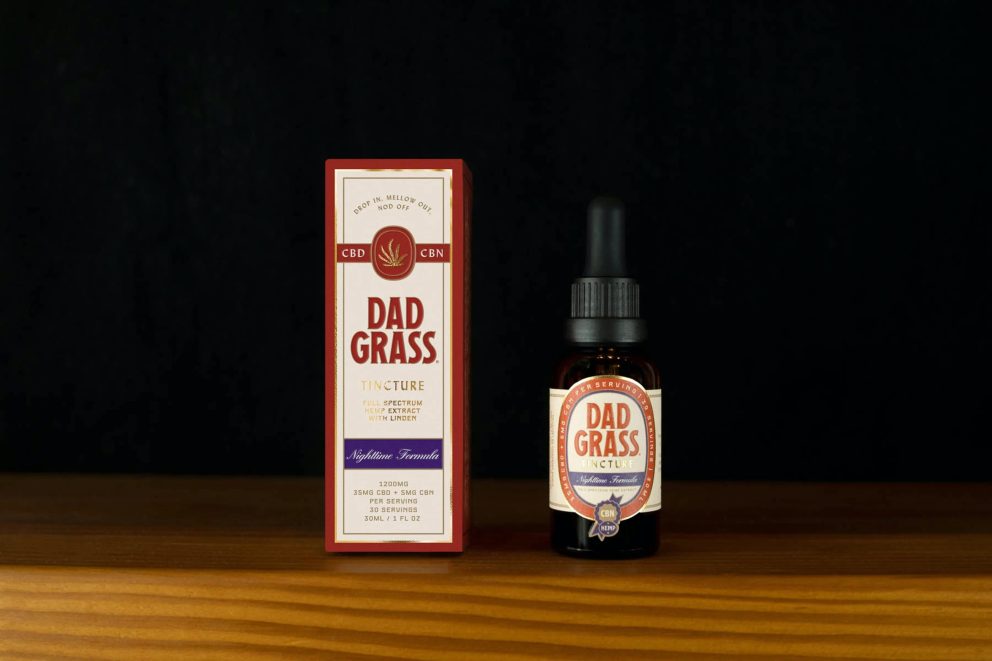
Photo by Dad Grass
Which Strains are High in CBN?
Thanks to its origins as a degraded form of THC, the best CBN strains are often also high in THC. In most strains, you’ll find CBN in relatively low amounts — usually less than 0.3%. And while THC- and CBD-rich strains can often reach up to 30%, the amount of CBN is usually still less than 1%.
The good news is you don’t need much CBN in your weed to feel a noticeable effect. Anything between 0.5% and 1% can still be considered a CBN-rich strain. The right strains already contain a lot of THC, but they’ve been perfectly aged to boost the levels of CBN to provide a more balanced experience.
And if THC isn’t your thing, there are always CBN-only or mixed CBN/CBD products available in a gummy or tincture form.
Here are five CBN-rich strains you can find on the cannabis market right now.
1. Blackberry
Known for producing energetic, uplifting, and euphoric effects, Blackberry is a balanced hybrid with up to 23% THC. It also has less than 1% of both CBD and CBN for a more balanced and relaxed daytime experience.
2. Durban Poison
Durban Poison is a 100% sativa strain that isn’t nearly as tough as its name. In fact, this strain is known for its stress-relieving and uplifting effects. It boasts a 22% THC level and 1% of CBN.
3. Bubble Gum
Bubble Gum is a balanced 50/50 hybrid that offers creative and euphoric effects with a relaxing body high. Its mood-elevating properties are delivered by an average of 15% THC and 0.38% CBN.
4. Lemon Kush
Lemon Kush brings a bright, citrusy flavor to the table with a balanced 50/50 hybrid strain. Its energy-boosting, cerebral high cuts through fatigue to prompt creativity, while the high CBN content keeps you relaxed.
5. Death Bubba
Death Bubba is a powerful indica-dominant hybrid that has up to 25% THC. This relaxing strain creates a couch-lock effect with a blissful euphoria to help you unwind after a long day. The mix of both CBD and CBN adds even more body-relaxing potency.
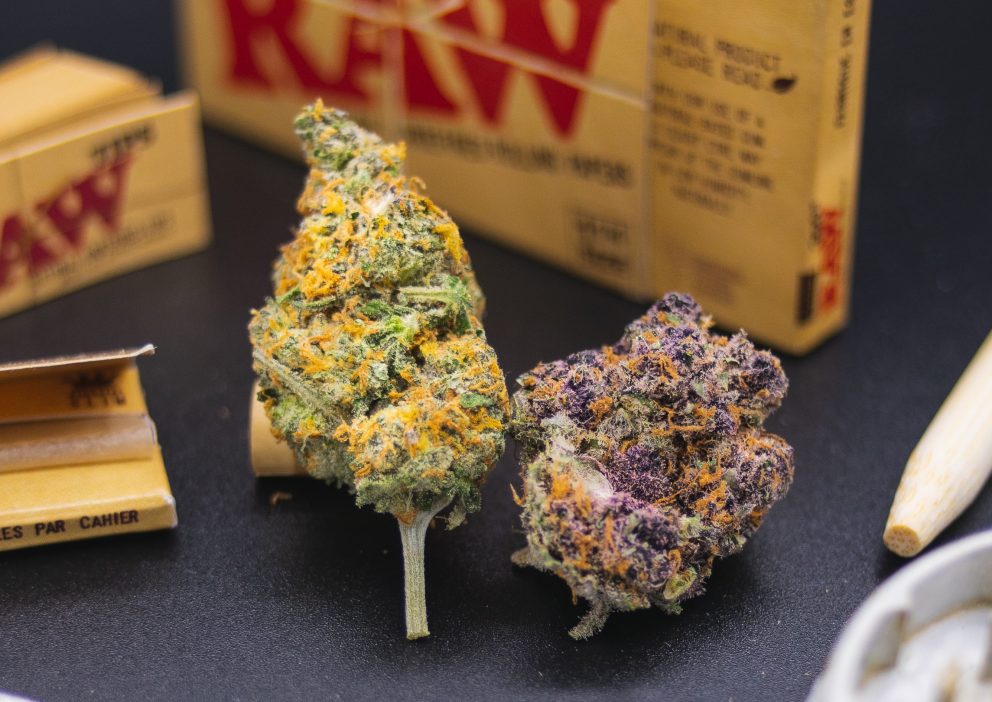
Photo by Patrick Slade
CBN vs CBD: What’s the Difference?
CBD and CBN are both cannabinoids with a non-intoxicating, relaxing effect. While they may be close cousins, they’re not the same compound.
What sets these two cannabinoids apart? Here are the most important differences that make CBD and CBN unique.
Concentration
CBD is the second most common cannabinoid in the cannabis plant. In comparison, the levels of CBN are extremely low, especially in live plants.
CBD isn’t just easier to find in live plants. It’s also something that growers can breed into the plants themselves, adjusting the levels to ensure a higher percentage of CBD. However, it’s impossible to do the same with CBN. That cannabinoid is only formed through the breakdown of THC, which takes a lot more time and effort.
Psychoactivity
While both CBD and CBN are generally considered non-intoxicating, there’s still technically a difference. CBD contains no THC at all, which means there’s zero chance of getting high through its consumption. While most people don’t get high from CBN, it’s still slightly psychoactive.
Cost
Thanks to its labor-intensive production process, CBN products tend to be far more expensive. In contrast, CBD is easier to isolate in large quantities. It may not take much CBN to produce an effect, but CBN-rich or CBN-isolate products are still far more expensive than their CBD counterparts.
Legal Status
The differences between CBD vs CBN become especially important when it comes to legal standing. CBD has unique protections in the U.S. — as long as it contains less than 0.3% THC, it’s considered legal.
CBN is more of a legal gray area. It depends a lot on how the CBN was produced. If it’s derived from a hemp plant with less than 0.3% THC, it’s legal. But if derived from a marijuana plant with more THC, it’s illegal. While you can still buy CBN products in most states, it’s far more regulated than CBD.
Research
Early research on CBN points toward some potential applications in the medical field, but there aren’t yet enough clinical trials to draw any conclusions. The lack of research into CBN means there’s a lot we still don’t know about its effects. In contrast, the effects of CBD are well-explored. CBD has been studied extensively in clinical settings to prove its science-backed benefits.
The Food and Drug Administration (FDA) has even approved the use of CBD in certain treatments. Meanwhile, no product containing CBN has so far been approved for medicinal use by the FDA.
Unlock the Benefits of CBN With a Medical Marijuana Card
While CBD has been in the spotlight for a long time, CBN proves to be a promising compound in the cannabis industry. More research is needed to understand the full picture of CBN’s effects, but many people have enjoyed results for improved sleep or relaxation with CBN-dominant products.
If you want to unlock the medicinal benefits of CBN, CBD, THC, and so much more, why not use a medical marijuana card? Learn more about qualifying for medical marijuana in your state or start the journey to get your own MMJ card with Green Health Docs.
 This article has been reviewed by Dr. Anand Dugar, an anesthesiologist, pain medicine physician and the founder of Green Health Docs. Graduating from medical school in 2004 and residency in 2008, Dr. Dugar has been a licensed physician for almost 20 years and has been leading the push for medical cannabis nationwide.
This article has been reviewed by Dr. Anand Dugar, an anesthesiologist, pain medicine physician and the founder of Green Health Docs. Graduating from medical school in 2004 and residency in 2008, Dr. Dugar has been a licensed physician for almost 20 years and has been leading the push for medical cannabis nationwide.
